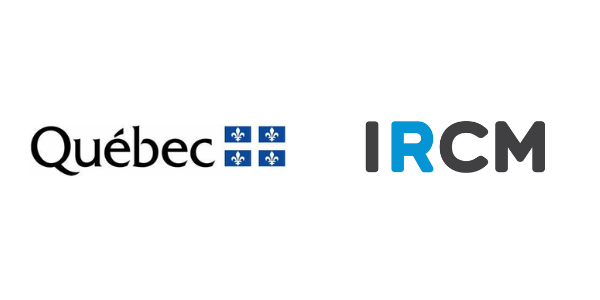Life sciences and health technologies play an important economic role, in addition to producing numerous innovations and contributing to improving people’s quality of life. In Quebec, this sector is currently thriving. It includes stakeholders from various backgrounds who work together to make fascinating discoveries, generate new, cutting-edge applications, and develop innovative therapies. The members of Quebec’s ecosystem operate in synergy – namely through networks and agreements – to create a robust and internationally-recognized industry.
Academic research
The majority of basic research – the branch of science behind any new treatment or application – takes place in universities. This explains why most knowledge and new insights originate in academic research settings. Quebec researchers are prolific in this area, as highlighted by the Fonds de Recherche du Québec – Santé (FRQS), which publishes nearly 40 accounts a year.
In this regard, the following statistics speak volumes:
- In 2018, public research in Quebec accounted for $6.4 billion of the GDP and employed nearly 47,000 people (KPMG report, 2019)
- The FRQs supported 212 laboratories which include 7,000 researchers, nearly 1,000 employees, and a large student population
- Quebec is actively involved in academic research. Researchers obtained $679 million in 2018-2019, which represents 27% of Canadian public financing, yet only 23% of university laboratories are located in the province (Learn more – in French only).
In Quebec, several research departments and centres are found in each of the following universities: McGill University, Université Laval, Université de Montréal, and Université de Sherbrooke. The five university health centres (UHC, known as CHU in French) make significant contributions to translational research and clinical research through their access to clinicians and their ability to study new treatments on a large patient population. In addition to these institutions, several Quebec hospitals are home to research centres which contribute to the acquisition of further knowledge.
| University | UHC | Affiliated Centres |
| Université Laval | CHU de Québec |
|
| McGill University | McGill University Health Centre |
|
| Université de Montréal | CHUM |
|
| Université de Sherbrooke | CHUS |
|
Research centres in Quebec
Greater Montréal:
- Montreal Neurological Institute-Hospital
- Centre de recherche, Institut universitaire de gériatrie de Montréal (CRIUGM)
- Centre de recherche de l’hôpital du Sacré-Cœur de Montréal
- Centre de recherche du Centre hospitalier de l’Université de Montréal
- Centre de recherche du Centre hospitalier universitaire Ste-Justine
- Montréal Heart Institute
- Research Institute of the McGill University Health Centre
- Montréal Clinical Research Institute
- Lady Davis Institute for Medical Research
- Centre de recherche de l’hôpital Maisonneuve-Rosemont
- Centre de recherche du Centre hospitalier de l’Université de Montréal
- Institute for Research in Immunology and Cancer of the Université de Montréal
- Centre de recherche de l’Institut universitaire en santé mentale de Montréal
- Douglas Research Centre
- Centre de recherche interdisciplinaire en réadaptation du Montréal métropolitain (CRIR)
- Institut de recherche Robert-Sauvé en santé et en sécurité au travail (IRSST)
- Génome Québec
- Centre for Commercialization of Cancer Immunotherapy – C3i
- Rosalind and Morris Goodman Cancer Research Centre (McGill)
- Centre for Research on Ethics (CRE)
- Institut de cancer de Montréal (affiliated with the CHUM)
- Polytechnique Montréal
- Centre de recherche de l’ÉTS
- INRS–Institut Armand-Frappier
Québec City:
- Centre de Recherche du CHU de Québec
- Quebec Heart and Lung Institute
- CERVO Brain Research Centre
- Institute of Nutrition and Functional Foods
- Institut universitaire de cardiologie et de pneumologie de Québec
- Centre de recherche sur le cancer (ULaval)
- INO
- INRS Institut national de recherche scientifique
Sherbrooke:
- Centre de recherche du Centre hospitalier universitaire de Sherbrooke (CR-CHUS)
- Centre de recherche sur le vieillissement de l’Institut universitaire de gériatrie de Sherbrooke
- Centre de recherche du Centre hospitalier universitaire de Sherbrooke
- Centre de recherche sur le vieillissement du CIUSSS de l’Estrie – CHUS
- Interdisciplinary Institute for Technological Innovation (3IT) of the Université de Sherbrooke
Financing sources
Although some discoveries lead to marketable innovations, research remains both mainly theoretical and risky. It serves primarily to develop knowledge within the entire ecosystem not only in Quebec but around the world, mostly through international collaborations.
As a result, most university research in Quebec is financed through public funds: the Canadian Institutes of Health Research (CIHR) invest approximately $1 billion per year to support health research, while the FRQS contribute close to $96 million in grants, internships, and scholarships. Many charitable foundations also provide grants to Quebec researchers.

